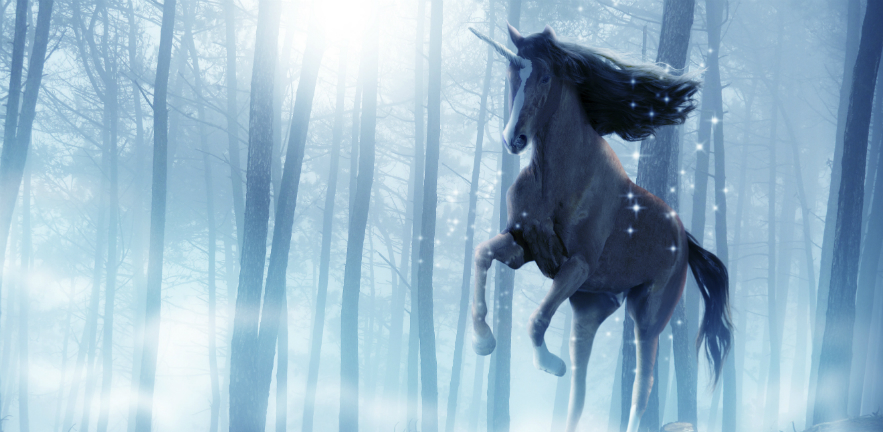When disaster hits, unicorns – the world’s leading tech platforms – can decide about life and death. Social circuit breakers could ensure that they take us out of the line of fire.

People love unicorns. Until they hate them. Under normal circumstances, we admire these mythical creatures that can seemingly defy gravity and prevent danger. However, when a crisis hits and a unicorn uses its powers excessively, the public is endangered and sentiment quickly turns hostile.

From myth to mammon
Unicorns do not only reside in the land of dreams. More prosaically, they are defined as those technology start-ups that have $1bn+ valuations[1]. They combine the cold possibilities of technology and the hot flame of innovation to disrupt key industries, such as transport, hospitality and communication. The ride-sharing app Uber and the holiday rental site Airbnb are two omnipresent examples. Social networking services Facebook and Twitter are equally famous but may well have graduated from unicorn status due to their immense stock market listings. Unicorns often benefit from colossal network effects: the size of their user base strongly influences the value of their platforms. This means that the number one positions that unicorns often enjoy in their respective markets may not only confer special power(s) but also demand special responsibility.
Fall from grace
Every now and again a unicorn falls from grace. The 2014 Sydney hostage crisis was one such moment for Uber. Just when a terrorist attack was unfolding in the central business district, Uber introduced “surge pricing”. This meant that fares were hiked for those desperately trying to escape certain danger and possible death. Indeed, users were informed that the minimum ride would cost $100 in a move that seemingly saw Uber profiteering from society’s misery. In the aftermath, the company stressed the automatic nature of its pricing system, apologised for the mistake and refunded those affected. Nonetheless, the damage had been done[2]. Just when society was on its knees, a unicorn seemingly tried to knock it down even further by abusing its powers. In the process, it dragged its mythical fellows into disrepute.
A helping hand
The November 2015 Paris attacks presented a different picture. During this tragedy, several unicorns came to the aid of the city. Rather than using their technology to profiteer from shell-shocked Parisians, they used it to help the population in their hour of need. Uber learned from Sydney and turned off surge pricing as well as providing information about the attacks to users. Facebook activated the “Safety Check” function which allowed its users to show their network that they were safe and sound[3]. Airbnb asked its users to shelter those affected by the attacks, connected the former with the latter and waived any charges[4]. As a result, these unicorns turned their innovations social and used their supernormal powers for good.
With great power comes great responsibility
The enlightened reaction should not remain an exception. Unicorns have leveraged technology and innovation with an unrivalled speed and to an unprecedented scale. Drawing on powerful network effects, they benefit from “winner takes all” situations. However, in extreme situations, the potent innovations of unicorns risk turning antisocial. Crises amplify the pricing mechanisms of Uber or Airbnb, and may clog up the newsfeeds of Twitter and Facebook. This is to the detriment of desperate users in need of a ride to safety, a place to shelter or information about their loved ones. Given the influence that they hold over our lives, unicorns need to be ready to protect us in times of crises.
From an exception to a rule
Circuit breakers are widely used, ranging from electricity to stock markets. Their basic function is to prevent fragile systems from breaking in extreme situations. They achieve this by halting those circuits that risk overloading or distorting the system. Unicorns could use social circuit breakers to prevent their platforms from being corrupted during emergencies. A social circuit breaker would immediately jump into action during a crisis to augment standard profit-maximising operations for public-interest activities. These could range from automatically turning off surge pricing at ride-sharing services to focusing social networks on life-saving information. In situations when every minute counts such simple measures can save lives. By introducing social circuit breakers, unicorns would leave behind any nasty memories of crisis profiteering and firmly place their superpowers at the service of society.
Unicorns can quickly get a bad reputation. Social circuit breakers would ensure that they continue to be the mythical creatures that we want them to be. Defying gravity in their restless innovation and preventing danger in society’s hour of need. After all, people love unicorns.
References
[1] www.investopedia.com/terms/u/unicorn.asp
[2] “Uber drives into Sydney hostage controversy“, Financial Times, 15 Dec 2014 (subscription only)
[3] “Facebook’s Safety Check activated in Paris: What is it and why is it being expanded?“, The Telegraph, 16 Nov 2015
[4] “Facebook’s Safety Check leads technology’s support of Paris“, The Guardian, 16 Nov 2015


Asrif Yusoff
No unicorn as of yet here in Malaysia but startups do step up in times of national hardship. During the (almost) annual monsoon flood, for example, startups come to the fore and help out in their respective areas e.g. F&B, transportation, communication.